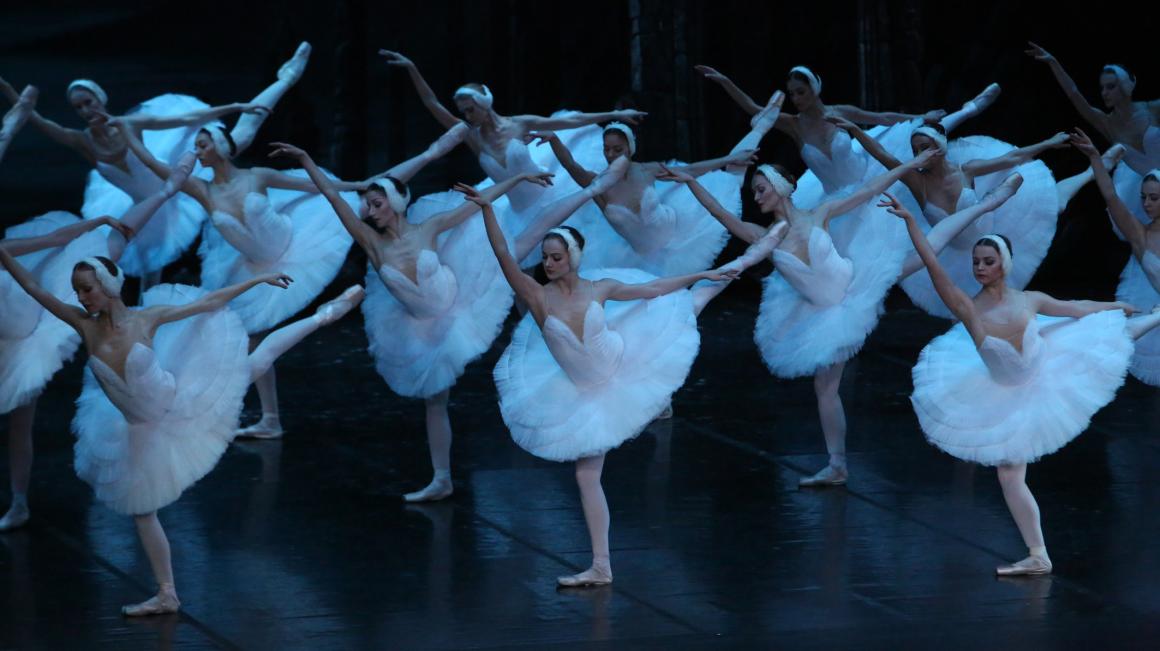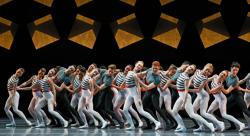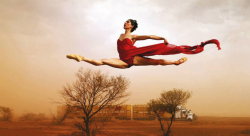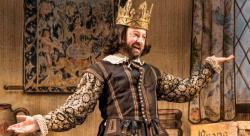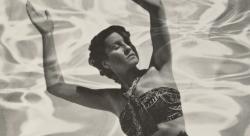by Simon Larter-Evans
The phrase ‘Russian ballet’ conjures the Cold War, the excitement of defection, and the possibility of intrigue and mystery. any Russian company coming to town has that backdrop to live up to, and the fizz of expectation still hangs in the air.
The St Petersburg Ballet Theatre does not disappoint. They are regular visitors to the Coliseum, typically ending a gruelling nine-month European and Australasian tour that starts in Finland, and takes in Hong Kong and chunks of Europe before ending in London for the summer season.
Swan Lake, the epitome of classical ballet, wasn’t immediately successful at its debut and only found fame with Marius Petipa and Lev Ivanov’s revival in 1895, and is now firmly in aspic as the balletomane’s reference. under the baton of Vadim Nikitin, the production opens at pace and in grand style – gothic ballroom and a tableau of dancers in silk and bling. Denis Rodkin, on loan from the Bolshoi, plays Siegfried as breathless innocence, beautifully elegant and ready to fall in love with anyone, or anything, especially if it reminds him of his mum.
The counter to Rodkin is Sergei Fedorov's quixotic and playful rubber ball of a jester, which brings to mind Wayne Sleep (for those who remember him). When Inna Svechnikova’s Queen, imperious and chic, presents her son with a lethal weapon for his birthday, he hotfoots it to the forest to try out his new toy, wherein he is bewitched. The trope of the well-ordered interior versus the dangerous allure of the magical forest is the mise-en-scène for Siegfried's real coming of age.
The moment prima ballerina Irina Kolesnikova’s Odette flashes dark eyes with Siegfried, her tremulous vulnerability brings a hush to an almost full house. Rodkin and Kolesnikova play well against each other, without any of the reserve we might see in English dancers. The potency of the swan image lends itself to the form, which can be exotic, sensuous and dangerous, and Kolesnikova’s performance draws on the idea of the possibility of death, the unattainability of love and, perhaps more poignantly, what might soon be lost. this in contrast to her Odile, which is playful rather than wicked, and perhaps undermines the conceit so beautifully constructed in the first act.
It’s all in the eyes, and Kolesnikova knows how to look. Notoriously demanding, Odette/Odile is the part every ballerina aspires to. The 32 fouetté turns at the end of the grand pas de deux can sometimes turn what should be a tour de force into a circus act. Not so with this production, which whips along at a giddy pace and Kolesnikova’s controlled Ritardando rewards us with an elegant double to finish. Set pieces have a good shape and, perhaps inevitably, the women are much sharper than the men. The Petipa/Ivanov choreography can be laboured and clunky in places, and it wouldn’t hurt the company to be a little more adventurous. Dmitri Akulinin’s Rothbart is pure pantomime evil, with the kind of greasepaint not seen since the days of limelight. The last act battle to save Odette doesn’t quite convince, as Rodkin doesn’t muster the violence needed to make this fight to the death believable.
Nevertheless, this is everything I would have hoped for from a Russian company – big gestures, great storytelling and a glamorous night out.
Until 2 September at the London Coliseum: 020-7845 9300, www.londoncoliseum.org


